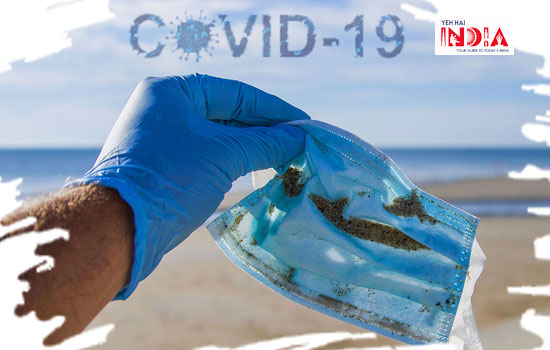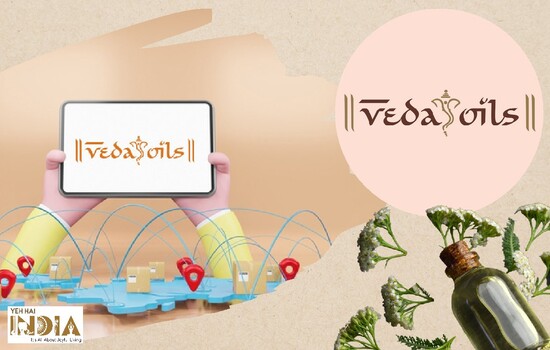As the Covid19 pandemic began, masks and hand sanitizers became an integral part of lives. However, these masks are becoming the new cause of the next Pandemic as it is increasing plastic pollution leading to death of animals and lethal diseases.
Just three months into the pandemic and masks started to choke the rivers and lakes of Hong Kong. The situation isn’t any different in the rest of the world. India too has been facing growing plastic pollution as discarded surgical masks are washing up to the beaches.
In fact, a global study showed that the world has produced 1.56 billion surgical masks and gloves in 2020, most of which have ended up in the oceans.
However, there’s a silver lining as startups and organizations are working out their way to produce Eco-friendly reusable masks that can be used for Covid prevention.
Recommended Story – Is there a Solution to Delhi’s Air Pollution? List of Startups working to solve the problem
The Mask Pollution in India
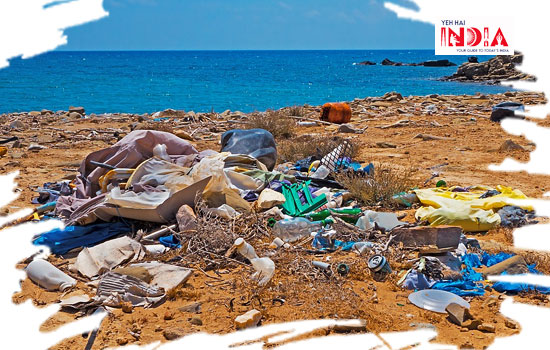
India has a large population and if each one of them wore these plastic surgical masks and discarded them regularly it would be a health hazard.
Delhi for example has a huge population of about 1.82 cr, even if 3 out of 100 of them discarded their surgical masks in 24 hours it could create a plastic waste equivalent to a football field. That’s 4.28 lakh masks discarded everyday and in Delhi alone.
These masks are made of polypropylene and rubber which takes about 30-50 years to degrade. So, think of living on plastic waste land for 30 years? Impossible and dangerous!
Now, as our medical waste disposal system is poor and ill equipped most of these discarded masks end up in oceans adding to the plastic problem. Last year during September, scuba divers in Rushikonda beach of Andhra Pradesh found 1500kg of plastic in the ocean of which the majority were masks.
Over the years, the plastic pollution in the oceans have decreased 70% of ocean life giving rise to more human-animal conflict which results in diseases and pandemic.According to WHO these masks can even take 500 years to fully decompose.
The problem is the same everywhere in India. In Mumbai’s Juhu beach 10,000 discarded masks and gloves were seen. In Goa, people have littered the streets and the beaches with plastic masks and now there’s a campaign which is asking pharmacies to stop selling these masks and resort to Eco-friendly ones.
But the problem is lot more complicated and requires solution at different levels.
Startups Making Eco-friendly Masks
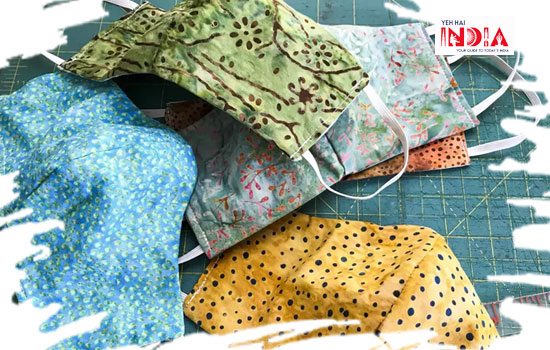
A range of startups and tech organizations are using science and technology to address the mask pollution issue by creating a variety of solutions.
It’s not just about eco friendly masks alone. It’s how to reuse and recycle the already discarded ones to reduce the waste. All of this has to be done in a way that makes it sustainable and reduces the danger of infection, as masks are Biohazards.
Multi layered cotton masks are the go to solution for many but they might not be that effective or Eco-friendly, as cotton requires heavy production which needs water and energy. This is a huge burden on climate change as well.
Therefore, Eco-friendly masks should be such that reduces the waste and does not add to the carbon emission.
1. Non Woven Nanoparticle Mask :
Pune based research institute The Defence Institute of Advanced Technology (DIAT) has come up with a biodegradable cotton mask ‘Pavitrapati’ that has the benefit of herbal nanoparticles of Neem, Tulsi and Haldi. These herbs are noted for their antibacterial and antimicrobial properties so they are effective in restricting germs to a certain extent. These three layered masks are produced non woven making it quite sturdy and effective.
2. Masks for Scrap Fabrics :
Chennai based sustainable living start up Oh! Scrap creates cotton masks from discarded fabrics. The goal of the startup is to promote healthy and sustainable living as well as fulfilling the social obligation of helping others. They collect leftover and discarded cotton fabrics from mills, shops, households, etc and turn them into masks. Many of their masks are given to the downtrodden like rag pickers, beggars, etc who can’t afford to buy one.
3. Organic Masks :
Odisha State owned organizations like Utkalika are making organic masks, made of kotpad cotton and Sambalpuri cotton which are quite washable, effective and skin friendly. Coonoor based startup Indian Yards is also making organic masks using Toda embroidery of the Nilgiris. The making of the masks is not only helping in reducing mask pollution but empowering the tribes of Tamil Nadu.
Thus, reusable Eco-friendly masks are changing the way we breathe in times of pandemic and protecting our environment at the same time.
Recommended Story – IroIro; Recrafting Textile Waste
Turning Mask Waste Into Houses
While we can prevent the problem of mask pollution by using Eco-friendly reusable masks, we can’t fully eradicate it until we get rid of the waste.
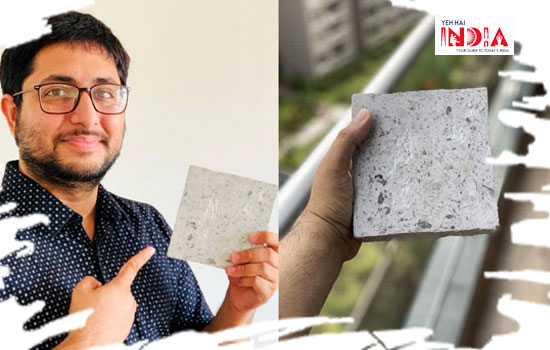
That’s what India’s recycle man ‘Binish Desai’ started to do as the pandemic unfolded. The founder of the Gujarat based company Eco Eclectic Technologies, Binish has been turning waste into construction material.
This solved the problem of landfills and built Eco-friendly homes, which was recognized by the industry and the people as he became part of Forbes ’30 Under 30′ entrepreneurs list.
Having turned chewing gum and paper to construction material, Binish worked on discarded masks in the lockdown to create Brick 2.0
He collected discarded masks from people, disinfected them and then combined them with a variety of materials in the lab to come up with these bricks.
His formula of 52% masks, 45% paper waste and 3% binder seemed to work and thus Brick 2.0, a recycled medical waste brick slab was created.
They then applied it to the Gujarat pollution control board to recycle the waste in the city and provided this as a construction material like the red bricks.
This shows how the perennial problem of plastic pollution has increased to a great extent since the pandemic began. Now it’s time for us to take it seriously and do our bit by following Eco-friendly path.
Also Read – Saving the Wetlands in India-How Citizens & Startups are working for it


